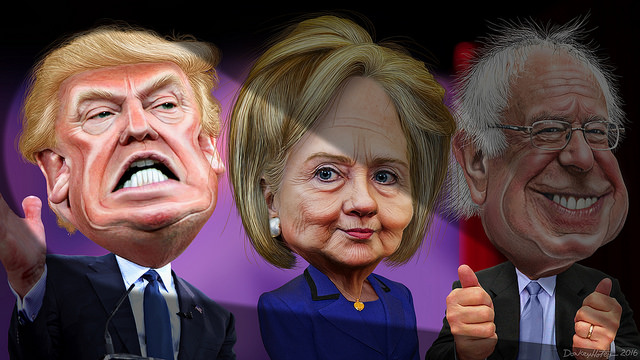The personal is political.
That was lesson number one in my politics class in college. We all have our reasons for voting the way we do, and if we investigate each reason down to its original source, we’ll find something deeply personal in our choices. Our politics might be based on childhood and family beliefs that are deeply ingrained, or they could be the result of one particular political issue that is meaningful to us due to our life experiences.
Each of us votes with our conscience, and because our life experiences differ, so do our belief systems.
So if we’re all voting the way that we feel is right, why is there such a breakdown in social courtesy when it comes to politics? If what is personal is political, then this isn’t an issue of right or wrong, good or bad. Social media and technology’s rapid advancement has given us an immediacy in our social interactions but has taken away the interpersonal element of face-to-face contact and has removed a feeling of accountability. In this way, we often feel free to criticize the choices of others while loudly proclaiming the rightness of our own choices.
Every time we do this, we invalidate other people and their right to believe how they choose. Is it possible, I wonder, to bring kindness back into our interactions? Can we feel strongly about our political opinions without allowing hate rhetoric to bleed into our communications with those who don’t agree with us?
Every day, I scroll through my Facebook feed and encounter one political message after another. My friend group is diverse and so are the opinions that I scroll through daily. There are friends on the far left and friends on the far right. There are friends who are moderate and those who don’t believe in participating in the political system. Some opinions that I see I agree with and support and others I don’t.
I limit what I share about my political beliefs because I know that to do so invites an argument that I don’t want to have on social media. There are a few things that I am willing to share, and one of them is my belief system about social etiquette when it comes to politics. Here are the basic guidelines that I use. May it be of benefit!
1. We can support the candidate of our choosing without criticizing the other candidates.
2. We can advocate why our candidate might be the best choice without criticism of people who might feel differently.
3. When we don’t agree with someone else’s political views, it’s okay not to initiate a debate. We do not have to comment on a status we don’t agree with. We are within our rights to keep scrolling and to let go. We don’t have to try to persuade or debate our opinions. In fact, if we choose to do so, it might be best done in a private message.
4. We have a civic responsibility to vote our conscience. The key word here is vote. We can proclaim our belief systems from the rooftops, but if we’re not putting it into action by voting, we’ve allowed everyone else to make the decision without our voice being heard. Yes, every vote counts. (As a side note, as a feminist, I feel that I have a responsibility to all the suffragists who worked hard and sacrificed to earn our right to vote. By not voting, I dishonor their efforts. This is a deeply personal reason why I vote.)
5. Politics is a subject best avoided in mixed company. This isn’t a belief that I have due to political correctness—it’s simply a courtesy I often choose to extend because I know that my Facebook post isn’t going to change the belief system of one single person on my page. I’ve yet to be swayed by a political meme, and I don’t know anyone else who has.
These are just a few guidelines that I use to attempt to keep kindness and consideration at the heart of my communication with others.
I understand that politics can get heated because so many of us are passionate about what we believe and why. I can understand that we all have fears about our leader being someone who doesn’t represent us and who may make choices that impact our lives (though there’s no need to threaten to move our citizenship elsewhere). While our political leanings have deeply personal roots, it’s important to remember that it’s the same for everyone else. Despite the political party we align with, we are all the same in that we are voting our conscience. If we can remember that similarity, perhaps we can begin to participate in the political process with kindness rather than in fear or anger.
The golden rule is applicable to all of us—regardless of politics or religious beliefs. We can allow our differences to hurt and divide us, or we can begin to treat everyone in the way that we’d like to be treated. Kindly, gently, with understanding that we feel the way we do because of our life experiences. Perhaps we can take out the divisive nature of our politics when we remember that all of our experiences are valid and deserve to be treated with the kindness that we all are worthy of receiving.
Author: Crystal Jackson
Image: donkeyhotey at Flickr
Editors: Renée Picard; Katarina Tavčar







Read 0 comments and reply